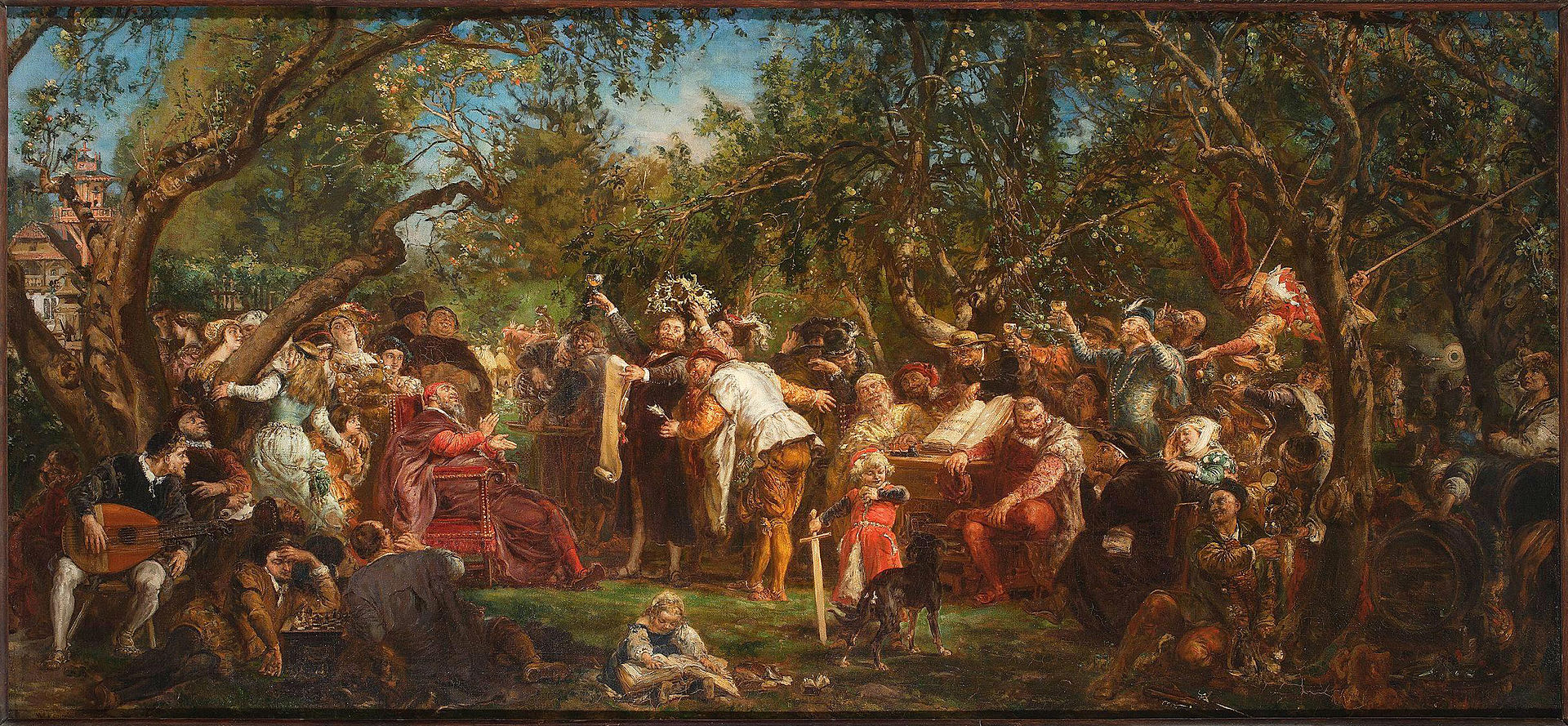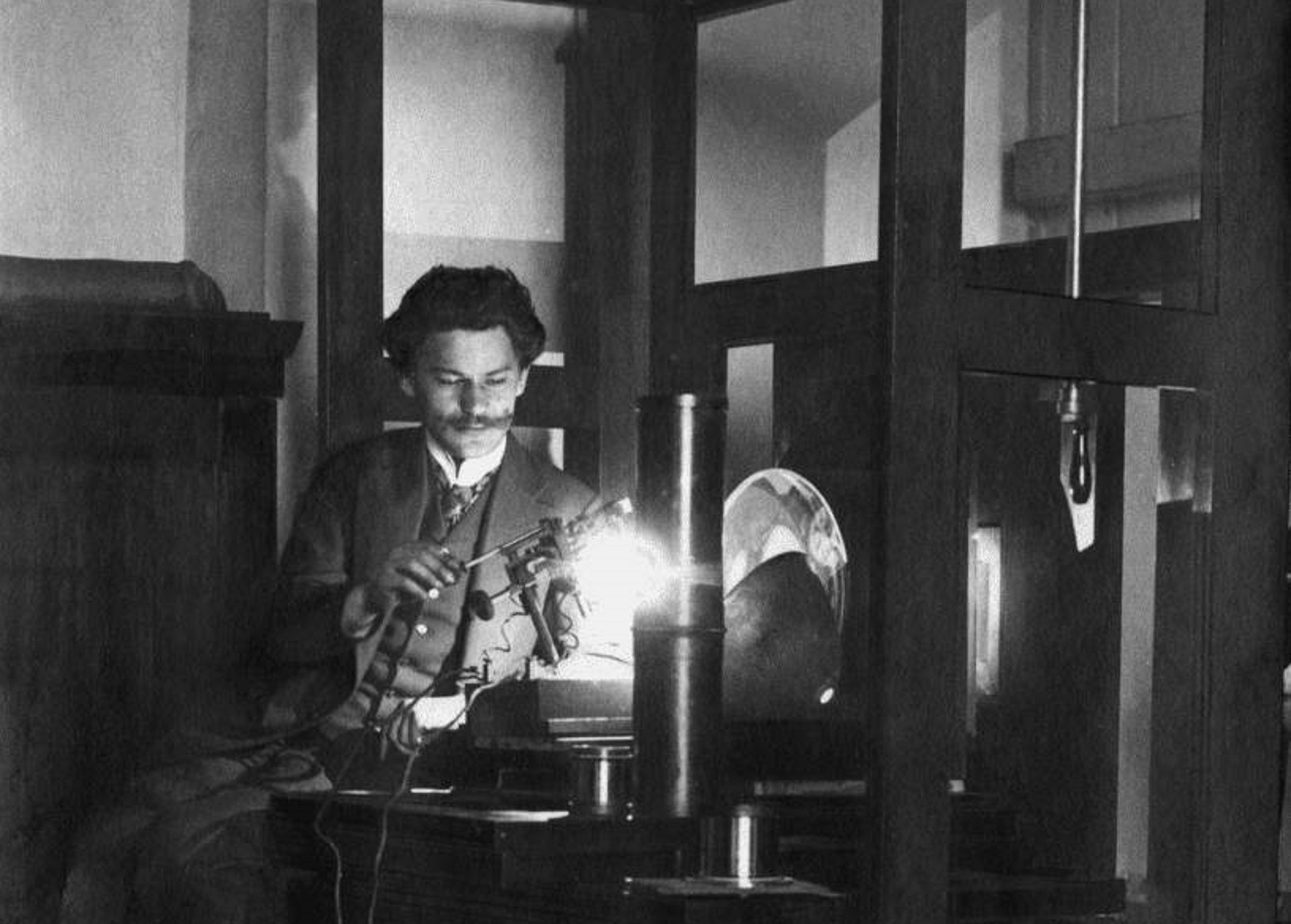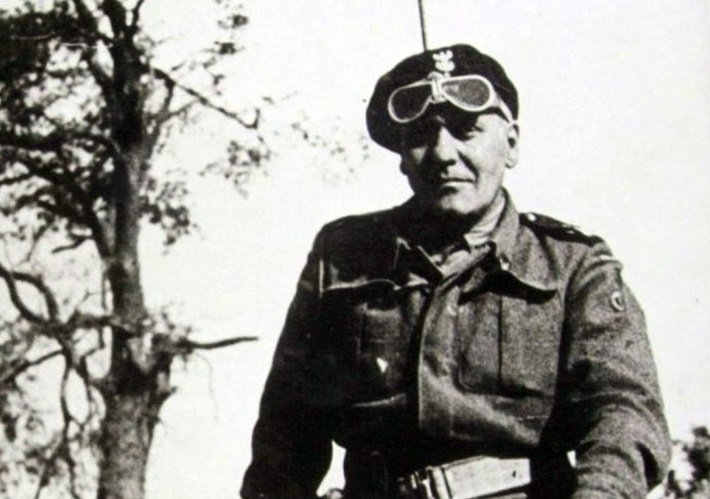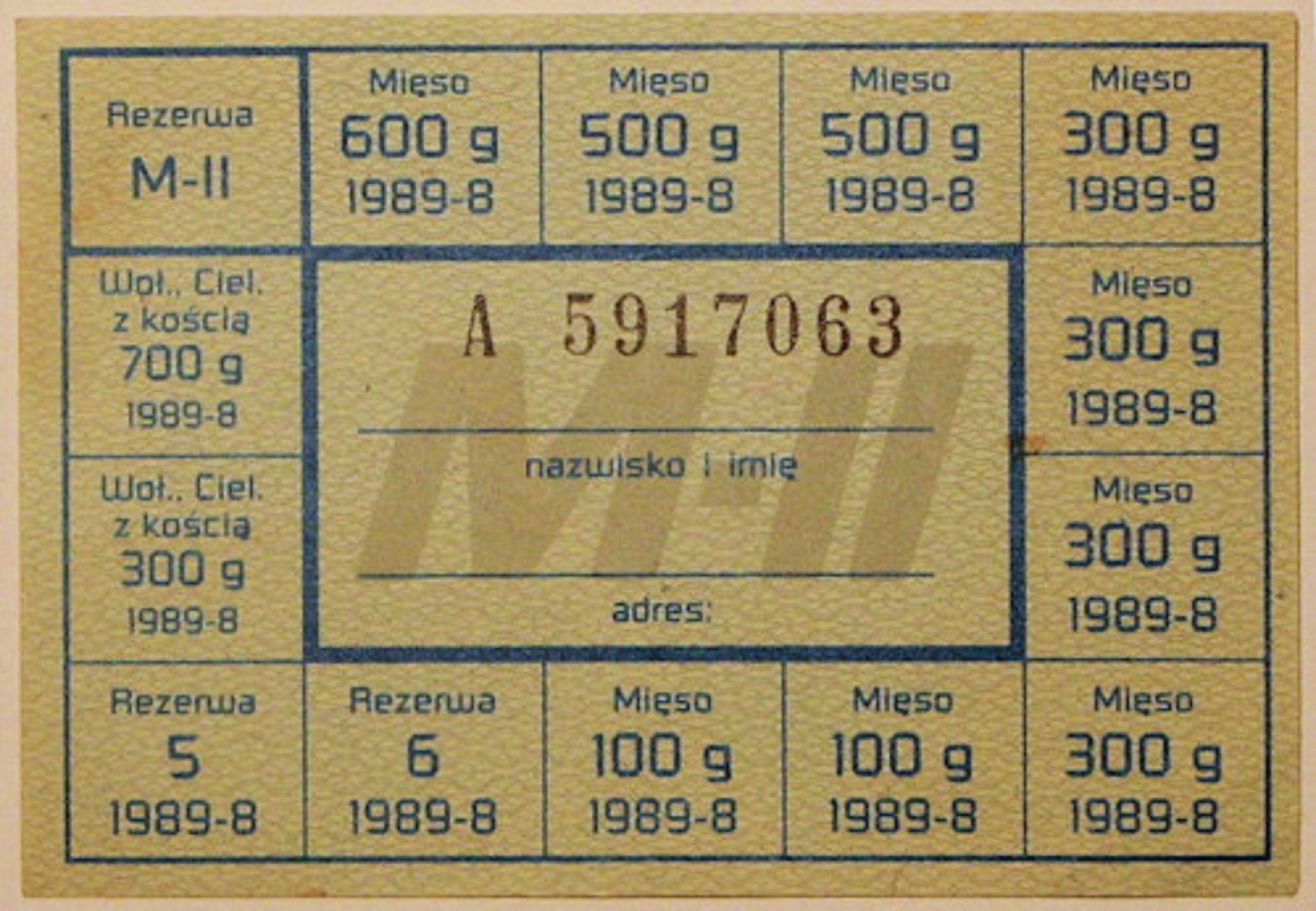The intellectual history of the 16th century was the most prolific in Poland. At the end of the 15th century, the rich Polish nobility began to send their offspring on “Italian trips”, cultural and educational expeditions to universities on the Apennine Peninsula. In Padua, Rome, Venice and Florence, young Poles encountered Renaissance ideas which “fell on fertile ground”. Visitors to Italian universities included the most important Polish intellectuals and future politicians, the writer and theorist Andrzej Frycz-Modrzewski, the chancellor Jan Zamojski, the primate Jan Łaski, the poet Jan Kochanowski. And Stanisław Orzechowski, who had a significant influence on the understanding of political reality by the nobility.
by Paweł Rzewuski
A noble tribune?
Stanisław Orzechowski is one of the most peculiar Polish authors of the past centuries. He was a man full of paradoxes; a fierce defender of Catholicism and a zealous opponent of the Reformation. The author of the concept according to which only a Catholic can be a good Pole, a defender of uncompromising Catholicism. At the same time – a man who was involved in endless disputes with the hierarchies of the Church over the celibacy of priests, which he ardently opposed. As a political writer he was considered by many to be a supporter of democracy, and at the same time he opposed many demands of the nobility. Despite numerous texts in which he criticized the propositions formulated by the nobility and defended the king and his authority, he is remembered as the greatest advocate of freedom. Without understanding the phenomenon of Stanisław Orzechowski, the complexity of his character and his paradoxes, it is difficult to understand not only the Polish Renaissance, but also the Polish political tradition, as complex and inconsistent as Orzechowski’s writing.

A man of the borderland
A priest, canon and enthusiast, Orzechowski was a man born at the intersection of the cultures of the East and the West. He was born in 1513, in the family of Stanisław Orzechowski, an official from Przemyśl, and Jadwiga Branicka, the daughter of an Orthodox clergyman from Barańczyce. From an early age he grew up in a place shared by Catholics, Jews and the Orthodox. In churches, people prayed in Latin and in Old Church Slavonic; this experience must have had a big impact on the young man.
Little is known about his childhood. Certainly, he was meant to be a priest. First, at the age of twelve (which was quite a common practice at the time), he was granted the Przemyśl canon, and then, at the age of 17, he was granted the rectory in Żurawica.
At the same time, he began his studies in Krakow, where he first encountered the Aristotelian ideas ruling at the university at that time. He also got to know the future political and intellectual elites of the Republic of Poland, and understood that philosophy and political activity were his life vocation.
After two years, in 1528, he went to the University of Vienna, and soon after to Italy. During his travels abroad, he became acquainted not only with the thoughts of Cicero and Aristotle, but also the most important intellectuals of the era, from Martin Luther to the Venetian diplomat and “philosopher of politics” Gasparo Contarini, with whom he would exchange ideas for the next years. During his Italian travels, he met many Poles studying in Italy, among others the future leader of the counter-reformation Marcin Kromer and Andrzej Frycz-Modrzewski, one of the most important supporters of the Reformation. For some time Frycz-Modrzewski was one of Orzechowski’s closest friends, but years later they became fierce polemicists. Orzechowski returned to Poland as a thoroughly educated man, familiar with the world and aware of his goals.

Eternal conflict
Was it his temperament, radical thoughts, or the wheel of fortune that drove him to conflicts in the first place? All these three elements can be seen in his dispute over the parish priesthood, and so he remained in opposition to Church hierarchies for many years. In 1543, he was excommunicated by Bishop Stanisław Tarła (it was, let us add, a punishment done lightly back then) for accepting benefices without the consent of the Vatican and for his absence from the diocesan synod. The excommunication was lifted thanks to the favor of Primate Piotr Gamrat.
Within five years, however, the successor of Stanisław Tarło, Bishop Jan Dziaduski, again excommunicated him. This time the reason was more serious: it was about preachings contrary to the teaching of the Church. Orzechowski, brought up on the intersection of the Orthodox and the Catholic world, and moreover, keenly listening to the arguments of the reformers, was a supporter of the abolition of celibacy.
After he publicly withdrew his previous statements, the excommunication was lifted again, even though, let us add, he lived in an informal relationship with Anna Zaparcianka, with whom he had children. Some time later, he expressed approval of celibacy although he did not stick to this opinion for too long as he wound up marrying Magdalena Chełmska.
This was the cause of the third excommunication in a row – but Orzechowski was defended by both the nobility and the magnates of Przemyśl, due to the fact that his political journalism was already appreciated by public opinion. Ultimately, his case was to be considered at the Synod of Warmia region, which transferred it to the Vatican. Let us add that Pius IV also washed his hands of it, and asked the Council of Trent to consider the matter of clerical marriage; the latter, in view of multiple tasks on its agenda, did not take it up. Meanwhile, Orzechowski left the priesthood and moved to live with his wife and children at the family estate in Żurawice Długie. He died in 1566.
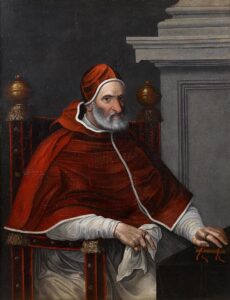
Swordsman of the Counter-Reformation
Political writing was much more important in his life than subsequent shifts in opinions on celibacy. He could express his thoughts in many forms. He wrote treatises, speeches, pamphlets and chronicles, and was skillful in using all these genres. Moreover, his turbulent life and conflicts with the church authorities did not necessarily overlap his political views. Indeed, he had been a fierce opponent of celibacy for many years and had published quite a few brochures devoted to this issue (especially “De lege Caelibatus”). At the same time, he eagerly stood by the Catholic Church and was a fierce advocate, both in matters related to politics and system and the Counter-Reformation.
However, this was not the only issue he dealt with. Orzechowski, who himself had to leave Vienna in his youth, threatened by the Ottoman invasion, from the beginning of his journalistic activity tried to instill in his compatriots a fear of Turkey. He devoted a few speeches to the threat of the expanding empire: they did not find fertile ground, however, the Islamic threat to the borderlands of the Polish-Lithuanian Commonwealth was to materialize two generations later.
After getting to know Western Europe and the Reformation, Orzechowski became a fierce opponent of Calvinism, Lutheranism and Arianism. While he approached the followers of the Orthodox Church with full understanding and searching for a common ground for both Catholic and Orthodox Churches, sympathizing with the projects of the union, in his eyes the Reformation was a threat to the existence of the Republic and the world. He devoted most of his journalistic texts to fighting Reformation enthusiasts, including his former friend Andrzej Frycz Modrzewski. Aversion to the thoughts of Luther and Calvin placed him in opposition to the intellectual mainestream. At a time when the majority of the Polish nobility were inclined towards the reformation concepts (especially the idea of the “national church” and secularization of church property), when King Sigismund Augustus allowed Lutheran enthusiasts to enter his immediate surroundings, Orzechowski fiercely protested. In his most famous work, Chimera, he even proclaimed the Reformation to be the work of Satan, wishing to destroy the Catholic world and open the way for Islam.
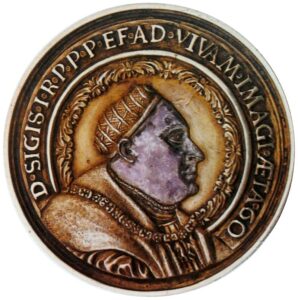
Theocrat
The culmination of Orzechowski’s political thought, however, were his proposals regarding the political system of the Republic of Poland. He was not consistent in his judgments; over the years he contradicted himself more than once. The evolution of his views on freedom is particularly interesting. In some of his texts, including the “Speech to the Polish Nobility Against the Laws and Regulations of the Kingdom of Poland”, he proved to be an ardent advocate of almost unlimited freedom of the nobility. He opposed the reforms of the law, arguing that they could harm Polish freedom and that they were something imposed, because the strength of the Republic of Poland lay in its citizens, who did not need strict codes. While writing this, Orzechowski became a tribune of the noble people who often gave his fiery speeches at parliaments and Sejm. The nobility trusted him when he claimed that freedom was the most important element of the political system.
In the texts that were written later, however, Orzechowski increasingly distanced himself from glorifying “Polish freedom”. The nobility appeared to him as a group of politically incapable people, sometimes even dangerous in their views. In “Quincunx” he awaited with horror for the upcoming free election, “Lord God, let me die before the death of today’s king, and recently wait for those bad days that will come after the death of this king, for his death is certain for the Kingdom of Poland.” He suspected that the nobility might take reckless decisions… As a result, from an enthusiast of democracy who did not want to allow for legislative reforms, he turned into its opponent. Ultimately, the considerations led him to believe that it was necessary to limit both civil and royal freedom. By interpreting Aristotle in his own way, Orzechowski created a new model of the social system described in the “Quincunx”.
What a peculiar title! And yet it makes sense: Orzechowski as an enthusiast of games and geometry referred to a five-element pattern, “quincunx”, known since ancient times, and also functioning today in games (it corresponds to the five-spot on six-sided dice), logos and design. Similarly, according to Orzechowski, the “field of power” in the Commonwealth should be organized: the four corners of the perfect square were to be created by “faith, priest, altar and king”, and the fifth element crowning the whole should be the Church.
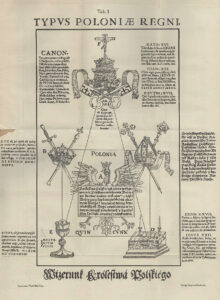
The ruler should act in the interest of the Christian world. Since christianitas was the highest value, theocracy was the best solution, i.e. an order in which the pope exercises supreme authority over the king. Senators and deputies should support the throne, and the system in individual countries should be based, in accordance with the recommendations of Greek philosophy, on a mixed system, i.e. a combination of monarchy, aristocracy and democracy.
He began with a revolt, yet he ended up at peace with the world. Excommunicated three times, he defended the primacy of the pope in his writings. He himself was especially proud of his chronicles, while he was mostly remembered for his paradoxes. He was fierce and zealous, and adored by the nobility – he had Oksza in his coat of arms, i.e. an ax with which, at least in his writing, he chopped without bothering about intricacies.
Author: Paweł Rzewuski
Transation: Mikołaj Sekrecki

